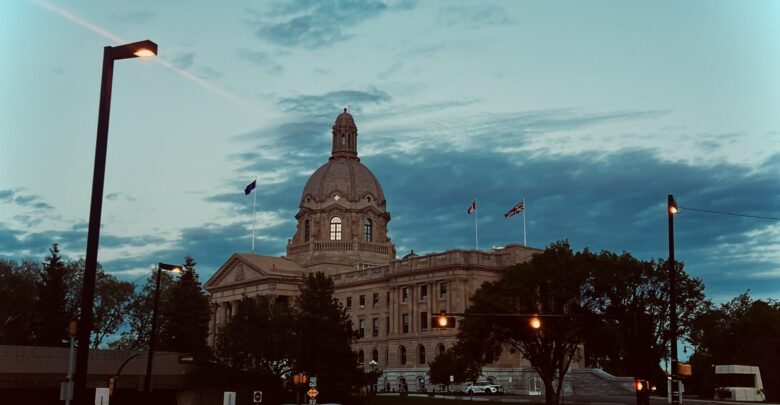Fracturing the vows: Alberta’s divorce of Canada
A new wave of separatism frustration with the federal system occupies Alberta's politics. Leaving Canada will cost more than it gains.
 Jasleen Mahindru
Jasleen MahindruFrustration fuels Alberta’s independence movement. But aggravation isn’t a logical reason to make drastic decisions. Separation will lead to legal chaos, economic turmoil, and political isolation. Destroying our relationship with Canada is not the answer to the emotions and pride we feel in our province. The chances of our province actually leaving Canada is small, but this idea is only amplified by Premier Danielle Smith. Smith does not explicitly support the movement, but she may be entertaining the idea during the next referendum. Albertans deserve to voice their opinions, but the premier listening to the loud minority of separatists sets a dangerous precedent for the future of the province.
Separating from Canada would lead to legal mayhem. The Canadian constitution does not provide a straightforward way to leave the country. A province cannot legally separate just by holding a referendum. There would be severe federal resistance over any attempts to leave. Amendments to the constitution would have to go through the House of Commons and the Senate. Ottawa works hard to preserve national unity, and separation would undermine that effort. For better or for worse, we did sign a prenup becoming a province, and backing out of it would require intense negotiations with other provinces and Indigenous nations.
Speaking of which, Indigenous nations are with Canada, not Alberta. Leading a succession would create bedlam over land rights, treaty obligations, and independence. It is important to note that the First Nations in Alberta have not consented to separation. In fact, they’ve loudly voiced their opposition to it.
When talking about separation, people always leave out the opinion of Indigenous nations in Canada. The treaties were signed with the Crown, not Alberta. The purpose of the treaties are to guarantee specific rights, protections, and land agreements. Leaving the country would destroy the provincial relationship with the many Indigenous nations that reside in Alberta. The government has not consulted any Indigenous or Métis groups on separation proposals, violating the constitution by attempting to redefine borders without their consent. Alberta cannot claim their lands, or transfer any jurisdiction. If Alberta tries to leave Canada, it will face legal force and international human rights challenges.
Whether or not the referendum is even possible is still in question. The review of Alberta separation is still in court, with a decision expected later this year. It is clear that the entire process has already created a constitutional mess before it’s even gone to the ballot.
Beyond just the legal mess of separation, Alberta relies on trade across Canada. Leaving the country would damage our confidence in business. Not to mention there would be a heavy increase in cost for exports. Alberta’s interprovincial exports add up to $76.1 billion, separating from the country could mean that we would lose out on that trade, or the cost of trading would increase. If we were an independent nation, we could be subject to tariffs and complex trade agreements with our surrounding neighbours.
There are a host of complications that come with independence. Tax uncertainty, regulatory changes, and financial instability will all come crashing down on us if we decide to leave. Alberta would have to establish our own economy and financial system, and due to our resource dependence this will likely end up having low value and high volatility. If we decided to continue using the Canadian dollar, we would have no control over interest rates or monetary policy.
Succession would create national border issues and political alienation. Entire new international borders would appear around our landlocked province, and we would need new border infrastructure and immigration policies. Not to mention Alberta would have to create a separate military, as we currently rely on the Canadian Armed Forces. We have representation in the Canadian parliament, and we play a huge influence in Canadian politics. By succeeding from Canada we would lose all of our political influence. Lastly, not all residents of Alberta support the separatist movement, and this move could lead to political chaos within the province.
Financial freedom and political independence may sound good on paper, but separating from Canada is the wrong move. Legal and political chaos, financial disruption, increasing costs for Albertans, and human rights issues will fall upon the province if we decided to divorce Canada. It might be best to renew the vows and go to couples therapy to work out our issues.




